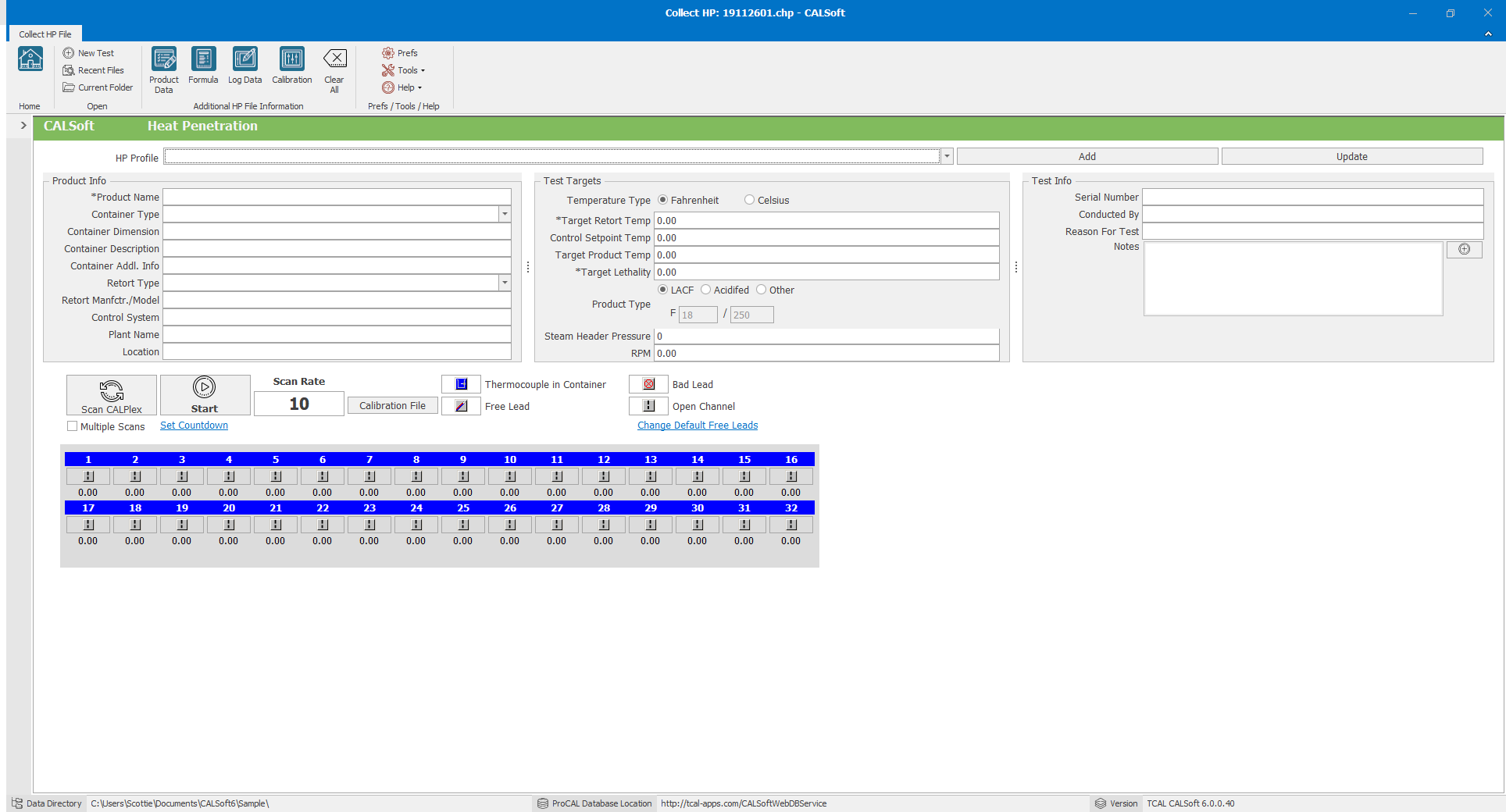Before running an HP test, CALSoft displays a form that allows you to document information related to the test you are conducting. This is referred to as the Test Documentation screen.
(required fields are marked with an *)

RIBBON MENU (on the top of the page)-
- Home
- HP New Test/Recent Files/Current Folder
- Product Data
- Formula
- Log Data
- Calibration
- Clear All- Clears all test documentation entries on the page
- Preferences/Tools/Help
HP PROFILE FEATURE- Import a user-created template that will auto-fill the boxes (For more information on this, please navigate to "HP Profile feature")
PRODUCT INFO-
- *Product Name: name of product being tested
- *Container Type (drop-down list)
- *Container Dimension
- Container Description
- Container Additional Information
- Retort Type (drop-down list)
- It is important to note that the m+g factor is determined based on your retort selection. The m+g is the factor used in the Ball Formula that represents the difference between the retort temperature and cooling water. Traditionally, for Steam retorts, the m+g = 180°F (100°C) and for Water retorts, the m+g = 130°F (72.2°C).
- Retort Manufacturer/Model
- Control System
- Plant Name: name of factory where HP testing was conducted
- Location: location of factory where HP testing was conducted
TEST TARGETS-
- Temperature Type: you can choose Fahrenheit or Celsius
- *Target Retort Temperature: target RT for data collection... The target RT entered will help determine when the Free Leads reach the designated target RT, or when "Come Up Time" (CUT) has been achieved
- Control Setpoint Temperature (optional)
- Target Product Temperature (optional)
- *Target Lethality: target F for data collection
- Product Type: choose Low Acid Canned Food (LACF), Acidified, or Other... Choosing LACF or Acidified will automatically set the z and Tref values for the sterility "F" value. Choosing "other" will allow you to enter your own z and Tref values.
- Steam Header Pressure
- RPM (for rotational/rotary retorts)
** If a target is entered before running a test, CALSoft will use it during the test to alert you when the target has been reached.
TEST INFO-
- Serial Number (of datalogger)
- Conducted By: name of person who ran test
- Reason For Test
- Notes
* For information on the bottom half of the Test Documentation page, please navigate to "Starting a Test."
